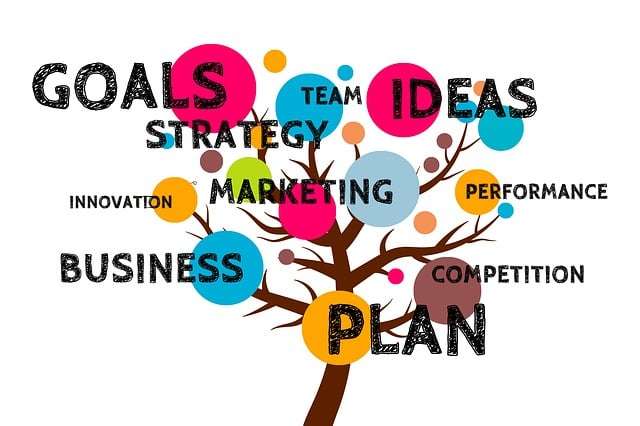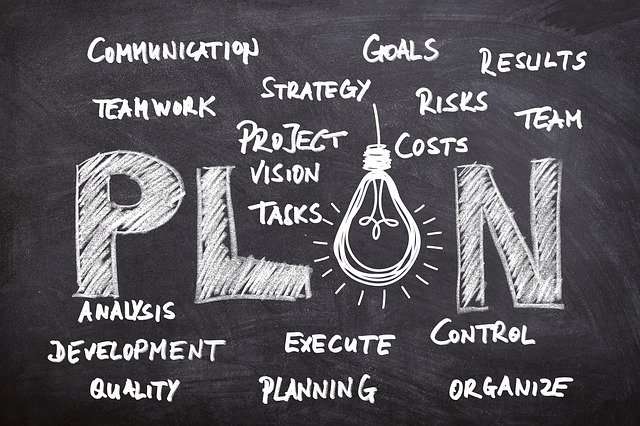
by Suellen | Meeting the Challenges, Success, Vision and Goals
Do you stay in the moment or do you find yourself tuning out as you go about your day? Our challenge today is to take notice. Present focus is one of the hallmarks of a growth mindset.
That is, people who have a growth mindset tend to focus on the present moment rather than constantly dwelling on the past or dreaming about the future. Most people are the opposite, and the more of a fixed mindset a person has, the more likely they are to be fixated on the past or future rather than the present.
Which timeframe do you focus on more? Past, present, or future?
Think about it for a moment and answer honestly. See if you can come up with a percentage split of past/present/future. You don’t need to be exact -an approximation will do.
Chances are that it’s not the present moment. If it is, great -you can use the techniques here to improve your focus. But if not, you’ve got some work to do.
The best technique for beginners to use to learn to focus on the present moment is mindfulness practice. This is an easy practice you can do anywhere, anytime that will gradually ease you into focusing on the present more and more. It doesn’t require anything except a few seconds of your time and some concentration.
This is how it works. Sometime during the day, stop what you’re doing, whether that’s work, eating, or anything else. Close your eyes. Notice everything that’s around you. The feel of your feet on the floor. The itchiness of your new shirt. The smells coming from the kitchen.
Do this for about 30 seconds. Then go back to what you were doing. That’s it -no special time set aside. Repeat this several times a day. Gradually extend the time you spend to a minute. Notice what other people are doing around you. Really notice them -as people, not background objects.
When you’ve mastered this part of the practice, start doing it while you continue your tasks. Take notice of what you’re doing, whether that’s grocery shopping, typing on the computer, or cooking dinner.
Slowly extend the number of times per day you do this and the amount of time you spend doing it. You’ll gradually become more focused on the present moment all the time without even trying.
Regardless, learning to focus more on the present moment will help you improve your mindset and continue your self-development journey.
You and Your Clients will Stay in the Moment When You Strive to Take Your Promised Land. Those Promises God has Given to You. See the Package Here.

by Suellen | Meeting the Challenges, Success, Vision and Goals
How did you like reading about good habits yesterday? Well, here are five more.
Each of these has other benefits besides improving your mindset. Any of these will help you improve your life overall. They will also help you cultivate your growth mindset.
Don’t think you need to attempt all of them;.
First try a few and see which ones work for you.
1. Eat healthy food
Food is fuel for the body and the mind. What you eat affects how much energy you have, how well you can focus, and your overall mood. Make a habit of eating healthy food and you’ll be rewarded with better health and a better mindset.
This doesn’t mean you should never eat junk food, but it should be a rare occasion.
2. Start an exercise habit
Exercise is good for you in so many ways and has profound, positive effects on your mindset. Occasional exercise will help you improve your mindset but making it into a habit is better.
You don’t need to train for a marathon. Get in the habit of taking a daily walk, go swimming, take up yoga or another gentle workout like tai chi, or do anything else that appeals to you.
The main criteria is that you make it into a regular habit, at least several days a week.
3. Prioritize sleep
Nothing makes you feel better than a good night’s sleep. And nothing makes you feel worse than a bad one.
Most people in the modern world are chronically sleep-deprived. If you want to cultivate a growth mindset, don’t be one of them.
Prioritize getting a good night’s sleep every night. Aim for 7-9 hours every night and you’ll be refreshed and ready to go the next day.
4. Take regular breaks from social media
Social media is fun and lets you connect with friends, but it has a downside. Too much social media lowers your self-esteem and makes you more prone to depression.
It’s all too easy to forget that most social media posts are people’s highlights and not their daily lives. It’s safe to say that many posts are more than highlights, they are exaggerations. Everyone wants to look good on Social Media, and you can see the results.
5. Do something creative
Creativity is one of the most necessary yet often neglected aspects of being a well-rounded person. The challenge involved in it will make you grow and improve your mindset.
All you have to do is look at nature to realize that our God loves creativity. We are made in His image, and our creativity expresses that likeness.
Aim to do something creative every day, or at least several times a week. Write, color, paint, draw, play a musical instrument -the options are endless.
Little by little we grow and change. Every little positive habit we can develop helps us get there. To a better mindset and a happier, more productive life.

by Suellen | Meeting the Challenges, Vision and Goals
Did you know that your environment has a big impact on your mental health? This includes your mindset.
It’s true; research has shown that the spaces you spend the most time in (your home and your workspace) have a dramatic impact.
While it won’t work miracles, improving your environment to make it more conducive to a growth mindset will not only improve your mindset but boost your mood and increase your personal growth. Here are several ways to do it.
1.) Bring in natural light
Humans are designed to spend lots of time outdoors. Our ancestors spent most of their time outside. Only in the modern era have we reversed that.
An easy way to make your environment more conducive to a growth mindset is to let in more natural light. Open windows or doors and let the sun in.
Hey! If you work on a laptop, why don’t you try sometimes working on your patio or porch?
2.) Add light, bright colors
Dark, somber colors can make you feel down and de-energized. Neutral colors have little effect, and bright or light colors do the opposite.
You might not be able to change the colors of the walls and furnishings, especially at work. Instead, bring in plenty of brightly colored accents.
3.) Declutter
Uh-oh!
Cluttered spaces raise our stress levels and make us feel scattered. This effect may or may not be conscious.
Get rid of the excess and see how much better you feel.
4.) Tidy up and organize
Keeping things neat, clean, and organized boosts your mood and makes your space a better place to work.
Get organizational supplies to put must-have items neatly away and out of sight.
5.) Add lots of greenery
Plants have the same sort of effect on mental health as natural light does and for the same reason. Bringing plants into your home will make you feel better and immediately boost your mood.
Over the long term, tending to plants and keeping them alive and healthy is great for growing your mindset too.
6.) Start a vision board
A vision board is essentially a collage of your dreams and goals.
Do you want to buy a house? Find a picture of the type of house you want and put it on the board. Do you want to go to Paris? Pin up a picture of the Eiffel Tower. Put the board up somewhere you can see it, such as above your desk, and look at it often.
Your Free Vision Board Tutorial may be found HERE.

by Suellen | Meeting the Challenges, Vision and Goals
You may have heard so many people talk about goals that you are tired of hearing about the subject.
I’ve been there.
You may be like me – and have a very busy life. When our lives contain many demands, we can be run by what’s known as the “tyranny of the urgent.” All of these things that you “have to do,” demand all of your time.
At the end of the day, you are tired and worn out. You just want to relax a little.
Yet there’s another saying. “If you don’t know where you are going, you might wind up some place else.” In other words, You and I need to have goals. Targets to reach for. Points of focus for our energy
So what are your goals? Do you have any? Or is that part of the problem?
Goals are important at every age; they give you something to focus on, challenge you, and give you a feeling of accomplishment when you succeed at reaching them. Improving your mindset will help you reach your goals, but first, you have to know what they are.
Take out your journal or a sheet of paper and a pen and write down your top five goals for your life. Big or small, it doesn’t matter. Write down the goals that YOU want to reach, not that society expects you to want. Pray about it. These are very personal.
When you’ve finished, look at the list and prioritize it. Take your top goal -the most important one you want to accomplish -and make a plan to reach it. It doesn’t matter if this goal is big or small, whether it’s something as big as starting a business or as small as putting together a 1,000-piece puzzle. Make your plan and incorporate it into your mindset and self-improvement program. This is now what you’re striving for.
But what if your page is blank? What if you don’t know what your goals are, or you don’t have any? Well, your task now is to come up with some. Again, these have to be goals that are unique to you, not to the broader society. If you don’t want to ever own a house, don’t make that a goal.
Take out another sheet of paper. Close your eyes. Now imagine that time and money weren’t an issue. What would you do? You can do anything, anything in the world. Write down the first five things that come to mind. Next, write down five things that you enjoy doing and would like to do more of if you could find the time.
Compare the two lists. You’re probably going to find a significant amount of overlap. These are the things you really want. This is where your heart lies. Psalm 139 talks about your “unformed substance” which God put there. Many times your desires arise from that part of you . Your innermost being. Listen to that still small voice within you.
Select a few of these things -three is enough to start with -and turn them into a concrete goal. “Travel more” could become “Take a cross-country trip in an RV next summer,” for example.
If your goal is to write a book, start smaller. Plan to write posts online. Start a blog, or write on Medium.
Think how you can start working toward those goals.There are no beginnings that are too small. Every step will bring you closer.
Having goals is an important part of your plan to improve your mindset. You need the challenge and the effort to catalyze your mindset shift and personal growth. You also need them to live your best life. Working on your goals is a win-win!
Check out this Done for You Pack Set Your Goals. You can share these posts, graphics, and more with your clients.

by Suellen | Meeting the Challenges, Vision and Goals
We humans are an impatient lot. When we want to do, achieve, or get something, we want it today, if not yesterday. This leads directly to impatience and frustration. It leads many people to give up when they’re on the verge of success.
Success takes time. Achievement takes time. Learning a new skill takes time, even if it’s something simple. Have you ever watched a young child learn to do something you take for granted, such as learn to walk?
Success is halting, uneven, often looks like going backwards, and sometimes involves falling on your backside (or your face).
The same is true of doing more difficult things as an adult. It takes about 10,000 hours of practice to master a skill. That’s almost 5 years of full-time work! This is why it’s said that we overestimate what we can do in one year and underestimate what we can do in ten years.
This is where the One Percent Rule comes in. It allows you to make visible, satisfying progress rapidly without expecting overnight success. It’s a simple rule: when you attempt to do something, aim to do it one percent better than before. Or finish one percent more.
If you practice this rule and do so faithfully, before long you’ll have mastered the skill or finished the task. Perfecting something is hard; doing it 1% better or finishing one percent more of a task is relatively easy. It’s a goal you can see and reach almost immediately.
You can apply this rule to anything.
Are you trying to learn to live by a budget? Aim to do 1% better each month.
Are you trying to increase how much you save? Increase it by 1% per month until you reach your ultimate goal.
You’ll see the progress every month but not feel a lot of pain from it.
Do you want to improve your self-talk? Set a goal of achieving 1% improvement every week or month.
Trying to start and keep an exercise routine? Once you get the habit down, aim to increase it by 1% a week.
Using a software program to learn a new language? Make your goal completion of 1% of the program every time you log on.
The uses of this rule are infinite. It’s one of the best ways to improve your mindset and achieve the personal development you want. It will fulfill your brain’s desire for immediate gratification and simultaneously fuel your long-term success.
















